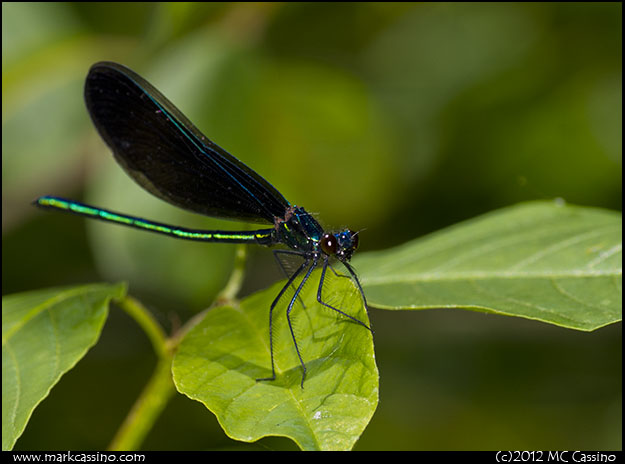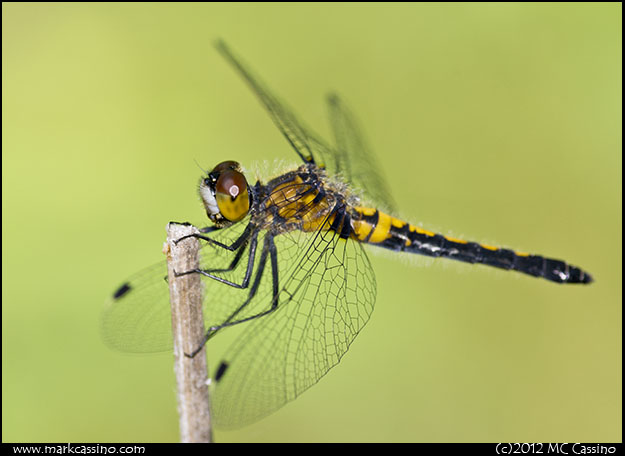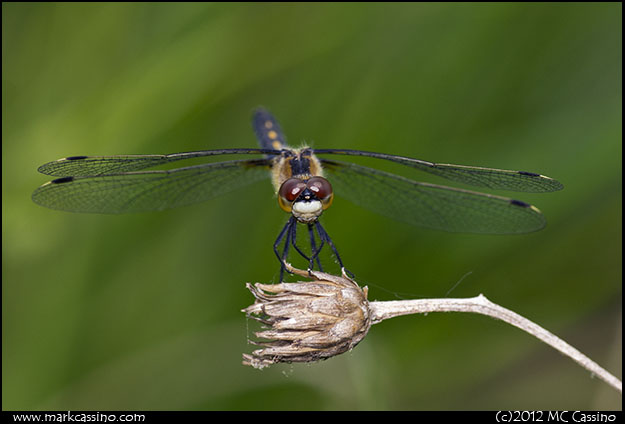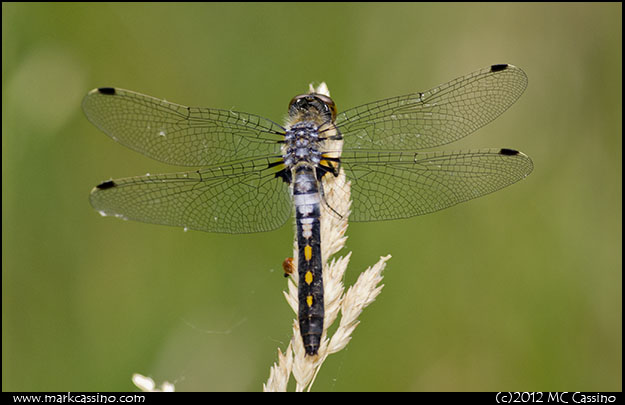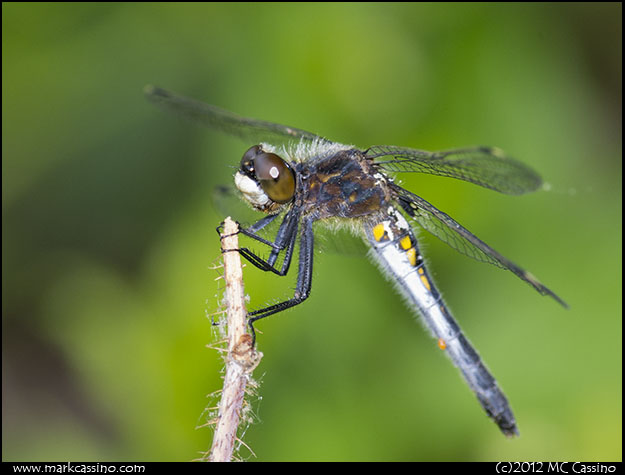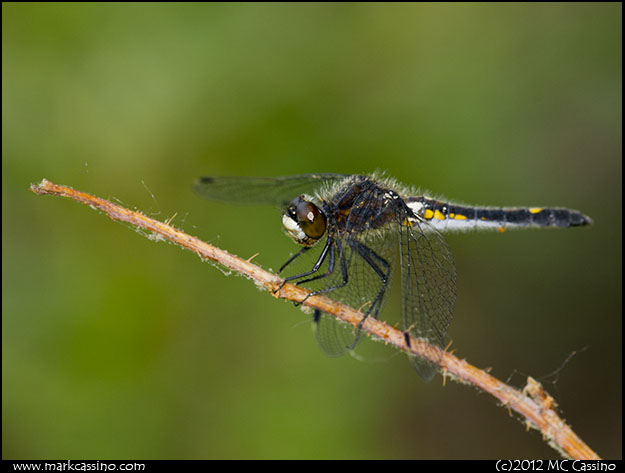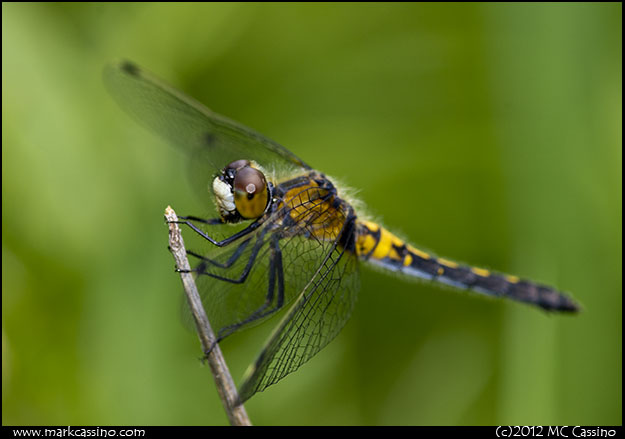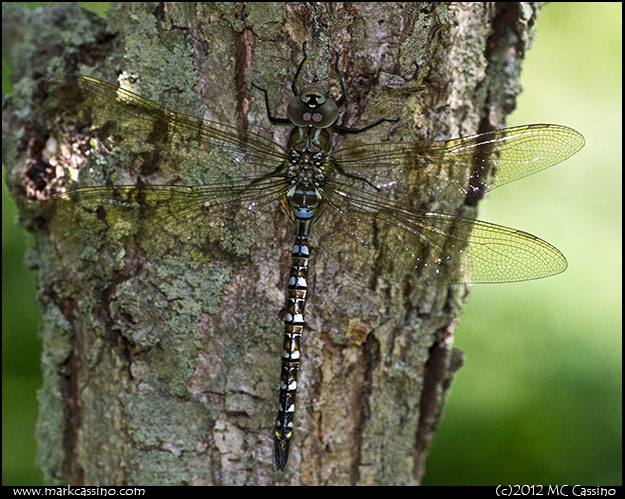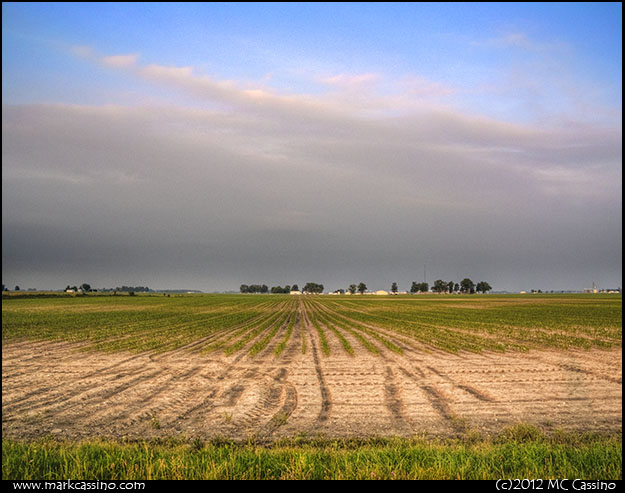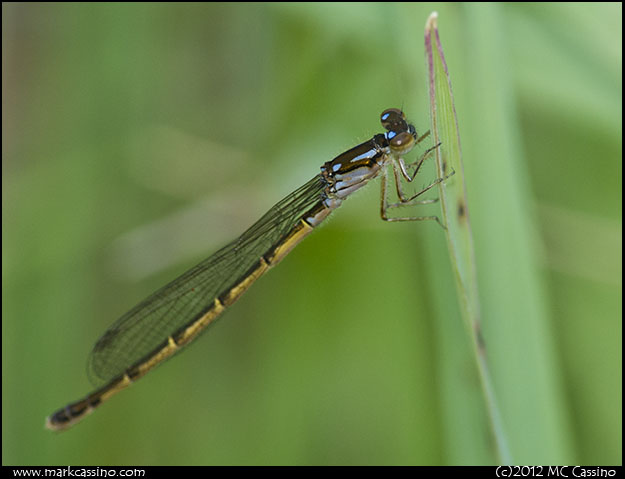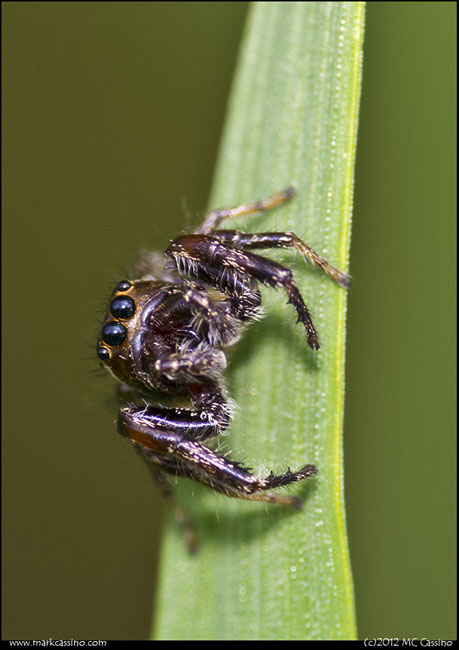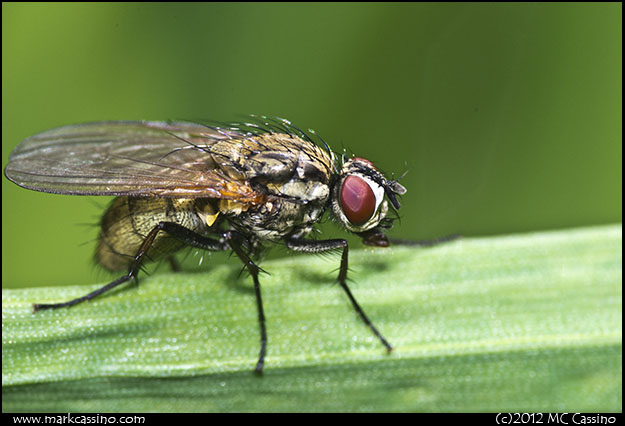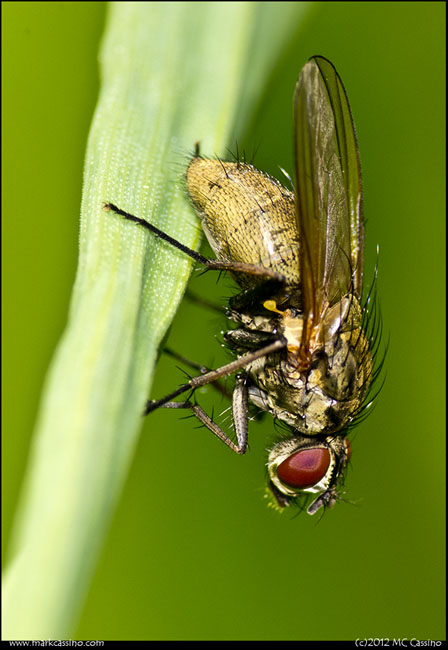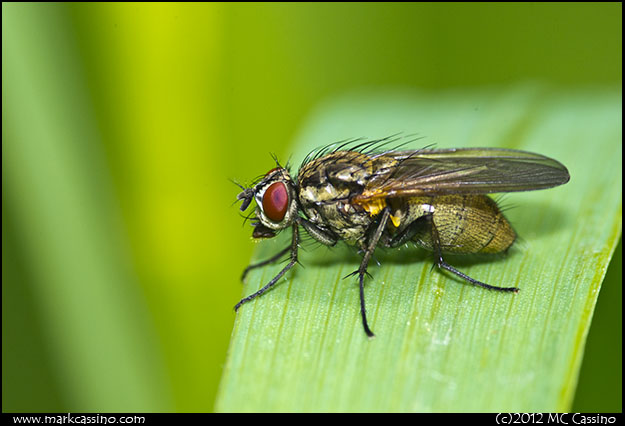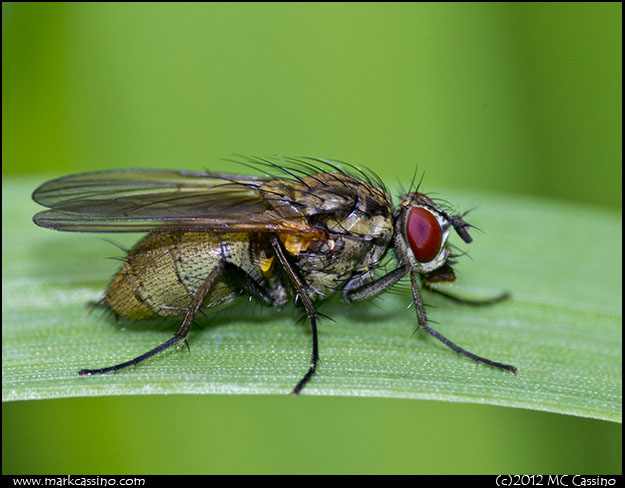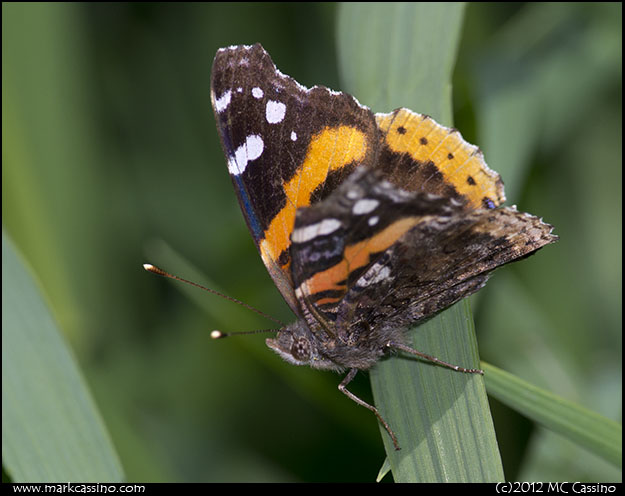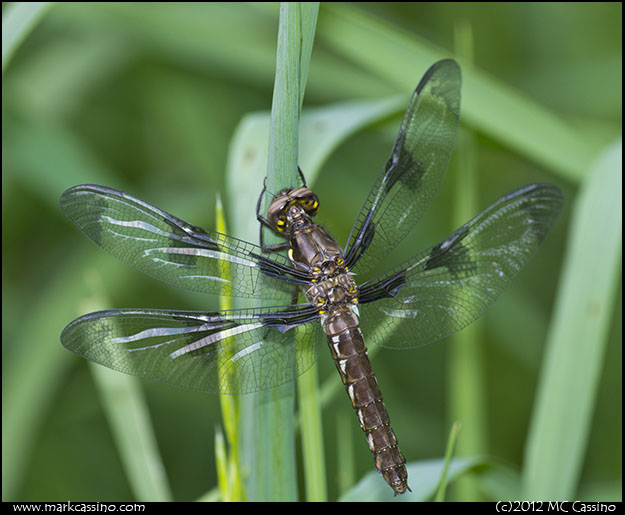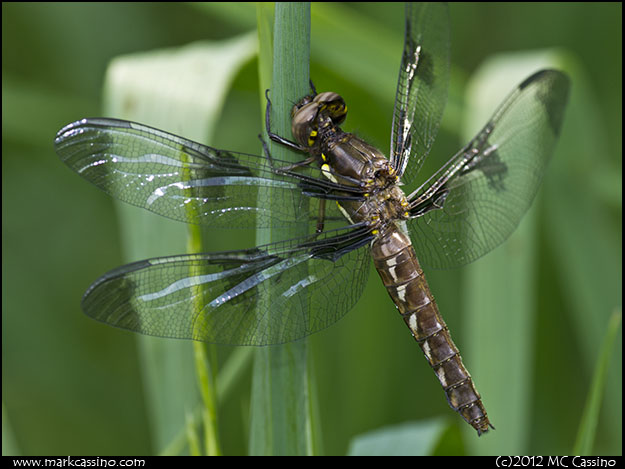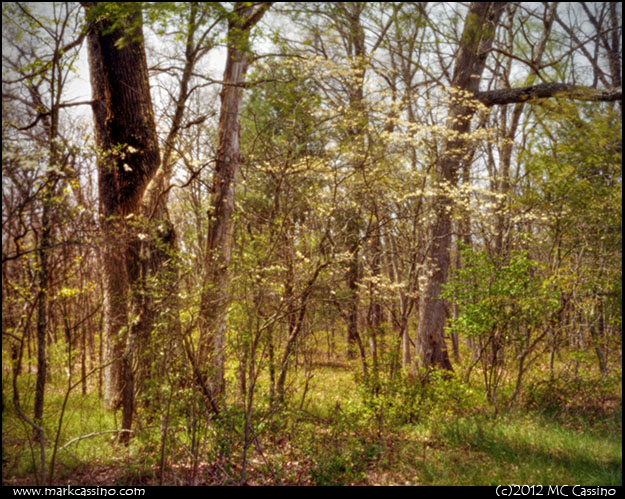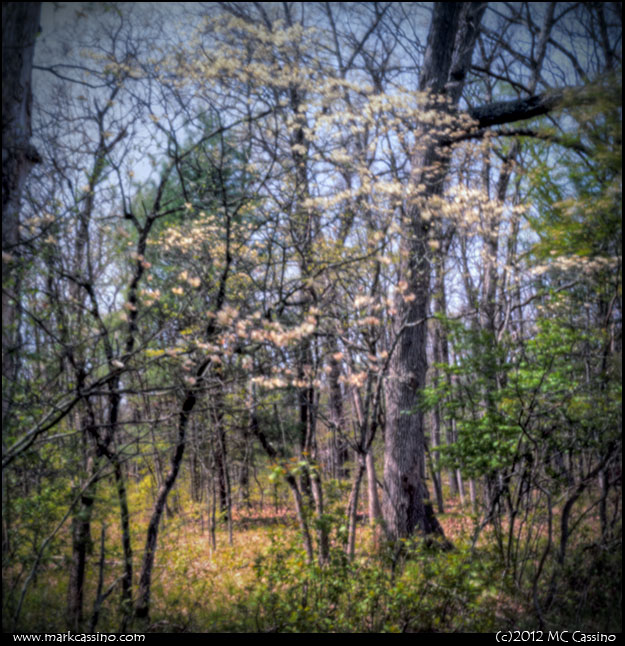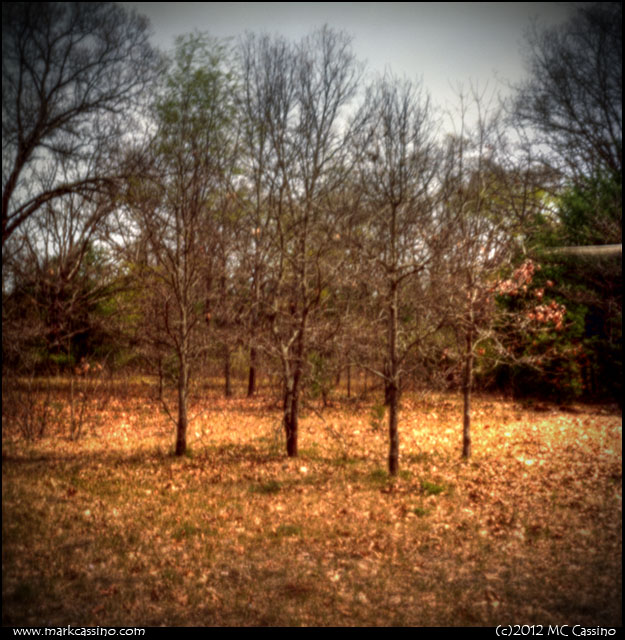In southwest Michigan the last days of May long, warm and dry. I made the rounds in some of my favorite insect shooting locations these last few days, and made a few images of spring odonates. Here’s the first installment -
This stunning damselfly appears only in the late spring and early summer, and I just saw the first of this year earlier today. Both of these are males - the females have white spots near the ends of their wings. (Click on images for a larger file.)
These insects are a blend of pure, light absorbing black with incredibly iridescent markings. They also like to hide out in the shadows, but are striking when they venture into bright sunlight. The challenge in photographing them is getting the flash just bright enough to bring up the shadows a bit, but not so bright as to invoke too much iridescence. I’m satisfied with the lighting in both of the shots above, but particularly with the second one, where the insect’s shadow, cast by the sun, is still visible despite the flash. I *think* that the flash was set to minus 4 or minus 5 stops (combination of the on flash exposure compensation and in-body exposure compensation.)
The very first dragonflies to appear in Michigan are often Green Darners that migrate into the state even as early as April. But the Dot Tailed Whitefaces are among the first locally hatched dragonflies to emerge. Although somewhat smaller than many of the pennants and whitefaces that appear in the summer, they share the habit of perching on branches and grass stalks in warm weather. Here’s a shot showing what I believe is a nearly mature male with the dot on the tail becoming visible:
And a couple of other shots of either immature males or females:
I see these locally much less frequently than the Dot Tails. Or it may just be that I don’t recognize them and confuse them with Dot Tails. Here’s a dorsal shot showing the distinctive white ‘frost’ on the thorax and abdomen that give these critters their name:
And, as I said, it can be difficult to tell the Dot-Tails from the Frosteds. In fact, it is difficult to impossible to clearly identify dragonflies in the field or from photos. Here’s three examples - my guess is that the top two are immature Frosted Whitefaces, since they show some signs of white on the top of the abdomen. As for the third - I can’t say…
And on that note of uncertainty, here is a darner that breezed by me in the Allegan Forest and kindly perched at eye level on a small tree for a few minutes. If I had been thinking I would have tried to get some photos showing the markings on the sides of the thorax, but I was thinking I photographing and just banged away… Well, given the time of year and the markings my best guess is a Springtime Darner, (Basiaeschna janata) - but that is a guess, plain and simple. Update: After a little more research, I’m now leaning towards this being an immature female Spatterdock Darner, Rhionaeschna mutata. I saw several mature males today (May 30), which are much easier to identify. See http://michodo.blogspot.com/2012/05/one-darner-of-day.html for more (and for a better photo than mine.)
Part II in a couple of days … Spangled Skimmers, Calico Pennants, and an unknown Club Tail.
